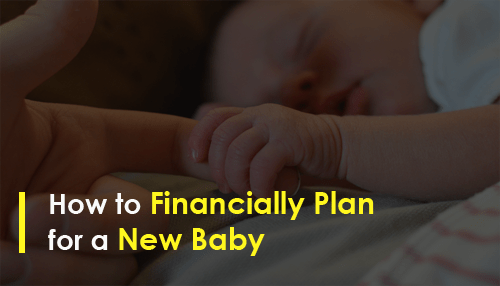If you are planning to have a baby or have one on the way, here are the most important financial tips to make sure you are fully prepared for your child’s arrival. Having a baby is expensive. From pregnancy until your child is eighteen years old, they are your financial responsibility. Thus, financial preparedness is something that all expecting parents should achieve.
Ideally, you should have financial planning in Utah before you even try for a baby. But if you find out you are expecting before you can prepare, you still have a few months to do it.
Either way, here are the expenses that you can expect in the next eighteen years of your life:
The costs of raising a child
- Pregnancy
- Doctor’s appointments
- Prenatal vitamins and supplements
- Maternity clothes
- Delivery costs
- Medicine and other medical costs
- Infancy
- Clothes
- Toys
- Food and formula
- Diapers and wipes
- Furniture and baby gear
- Daycare
- Hospital fees
- Childhood and adolescence
- Clothes
- Food
- Education
- Allowance
- Entertainment
- Babysitting fees
- Extracurricular activities
- Vacations, field trips, etc.
- Insurance
On average, the cost of raising a child to 18 years of age is $233,610 for two married parents, according to a Department of Agriculture (USD) study in 2017. The cost does not include college.
How to prepare for a child
With the expenses listed above, it’s evident that bringing a child into the world is also a substantial financial undertaking. To prepare your family for the new addition, here’s what you can do as early as now:
1. Create a budget
Before the baby comes, create a budget that will fit your household’s current income. Doing this can help you estimate what you need to spend in the first year and influence decisions when it comes to planning other expenses.
Take into account other factors that affect income, such as a parent taking time off work or if the family needs to move to a bigger place because of the baby.
2. Build an emergency fund
If you don’t have one yet, build an emergency fund as soon as you discover that you are expecting a child. Save a minimum of three months’ worth of living expenses in that account to make sure you have a safety net.
If a parent is quitting their job to take care of the baby, save at least six months’ worth of living expenses into your emergency fund.
3. Figure out your medical expenses
Estimate how much you will be paying out-of-pocket when the baby arrives. Go to your HR or insurance company and ask about the out-of-pocket expenses for prenatal care, delivery, and postnatal care.
4. Slash other expenses
If the pregnancy is unexpected and you are barely financially capable of handling it, cut down on your expenses as soon as you can to put more money in your baby fund.
5. Prepare for the future
After you plan for the first few years of your baby’s life, you can start preparing for the future by making your will, adding your child to your insurance policies, and saving up for the future.
A baby is a huge financial responsibility, so before you try for one, here are the tips you need to know to prepare your family for its new member financially. With skyrocketing college prices, it’s never too early to start saving for college. Opening a 529 plan is a tax-advantaged way to set aside money and see great returns on interest. Many parents open 529 plans before their child is even born; you can name yourself as a beneficiary and then transfer it later.




